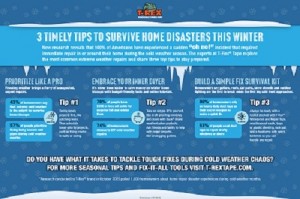Many people experience some kind of traumatic event at least once throughout their lives. Most people have a brief reaction to the stressor and recover naturally. However, some will continue to experience negative outcomes following the traumatic incident, which can lead to a condition called post-traumatic stress disorder, or PTSD.
What is PTSD?
Several main features define PTSD.
- Exposure to actual or threatened death, serious injury or sexual violence.
- Intrusion symptoms, such as flashbacks (feeling as though you are re-experiencing the trauma in the present moment) and nightmares.
- Avoidance of things that remind you of the trauma, such as people, places or sensations.
- Negative thoughts, including thoughts about yourself, others and the world, and a depressed mood.
- Reactivity and hyperarousal ("jumpy" or "on edge").
- Dissociation or derealization (extreme feelings of detachment).
- Symptoms cause significant impairment in your life and/or significant distress.
- Symptoms present for at least one month.
About 6% to 9% of adults in North America will develop PTSD at some point in their lives. Types of traumatic events may include physical assault or injury, intimate partner violence, sexual trauma, accidents, combat/war, race-based trauma, gender- and sexual orientation-based trauma, natural disasters, refugee trauma and medical trauma, among others. Minoritized people and groups are more likely to develop PTSD due to higher rates of traumatic exposure coupled with greater barriers to accessing care.
PTSD affects the central nervous system, causing the body to be in a chronic state of stress. The brain and body are on high alert to help you look for potential danger. Usually, this ability to identify and respond to dangers in our environment is helpful and adaptive, but among people who have PTSD, this system becomes overactive. This chronic stress response is difficult for the body to maintain and has been linked to increased risk of several other health concerns, including:
- Sleep disturbances.
- Substance use disorders.
- Mood disorders (e.g., depression).
- Anxiety disorders (e.g., panic disorder, generalized anxiety disorder).
- Irritable bowel syndrome.
- Hypertension.
- Type II diabetes.
- Cardiovascular disease.
- Autoimmune diseases.
Fortunately, many people recover and no longer meet the criteria for PTSD. Recovery can occur through resilience-promoting factors and/or receiving evidence-based treatment.
Resilience can be characterized as "bouncing back" or adapting to maintain functioning following a stressful or traumatic experience. Importantly, resilience is not a characteristic that some people possess and others do not — resilience can be fostered in various ways. Examples of things we can do to help promote resilience may include:
- Connecting and spending time with supportive and safe others, such as friends, family or community-based groups.
- Taking care of your health by prioritizing sleep, moving your body, eating well, hydrating and attending regularly scheduled primary care visits.
- Engaging in activities that you find enjoyable and meaningful, even when they may feel challenging.
- Allowing yourself to feel what you feel and have compassion for yourself and your experience.
It's also important to consider resilience as a process that doesn’t just fall on people. Societal and policy-level changes are critical in fostering the resilience of our communities.
Finally, seeking professional psychological treatment can be very effective in promoting recovery from PTSD. When seeking this type of support, it's important to be aware of the evidence-based psychotherapies (i.e., supported by research) to be the best consumer of your care. Many of the symptoms of PTSD are maintained by avoidance of people, places, emotions, thoughts or memories associated with a traumatic event. Therefore, evidence-based treatments for PTSD typically focus on approaching these experiences in ways that are safe and structured with support from a clinician. Through approaching, instead of avoiding, we learn new ways of relating to difficult thoughts, memories and emotions, and they tend to become less distressing over time.
Two common research-supported therapies are prolonged exposure (PE) and cognitive processing therapy (CPT). PE focuses on helping a person specifically approach trauma-related memories as well as situations in the person's life they may be avoiding due to trauma and associated emotions. CPT focuses on helping people understand how trauma may have led to thoughts and beliefs that are unhelpful for recovery. In CPT, patients work with their therapist to examine these thoughts and to build skills to think more flexibly about their trauma. Finally, trauma-focused cognitive behavioral therapy (TF-CBT) is a treatment approach for children and adolescents and their parents/guardians. TF-CBT focuses on identifying the associations between thoughts, emotions and behaviors in the context of trauma and helping children and adolescents build effective coping skills.
If you believe that you or a loved one is struggling with trauma symptoms, consider reaching out to your primary care clinician and talking about your concerns. Ask your clinician about mental health resources and support that may be available to you.
Kyle Schofield, Ph.D. is a clinical health psychology fellow in Primary Care in Rochester and Kasson's Division of Integrated Behavioral Health at Mayo Clinic.
Anne Roche, Ph.D., L.P., is a clinical psychologist in Primary Care in Rochester and Kasson’s Division of Integrated Behavioral Health. She is a Population Health Scholar at Mayo Clinic.
Craig Sawchuk, Ph.D., L.P., is a clinical psychologist in Primary Care in Rochester and Kasson's Division of Integrated Behavioral Health. He is the co-chair of the Division of Integrated Behavioral Health and co-chair of Clinical Practice with the Department of Psychiatry and Psychology at Mayo Clinic.










